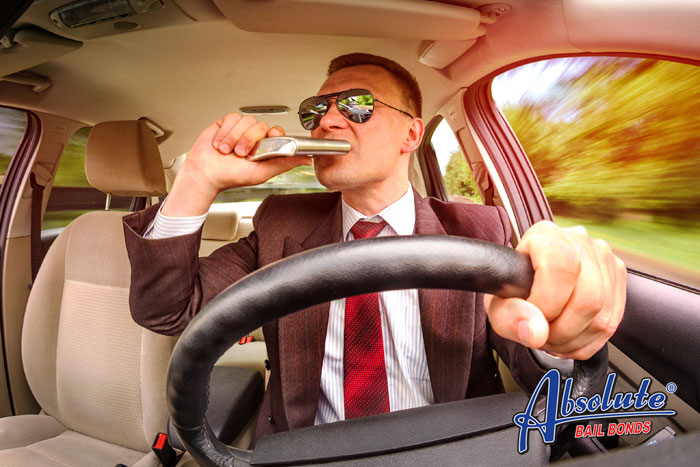
Teen Marijuana Use in California
Recreational marijuana is legal in California. However, that doesn’t mean that teens are allowed to partake in marijuana.
At this point, it’s legal for anyone who is over the age of 21, to grow, use, and carry marijuana. That age limit is important. If a person is 21 and enjoying some marijuana, they’re fine. The same isn’t true if their 19-year-old friend is doing the same thing.
The one exception to marijuana use in teenagers is if that medical marijuana can be prescribed to anyone who is at least 18 years old. That means that if an 18-, 19-, or 20-year-old has a prescription from a legit doctor, they can legally use marijuana. If a teen is prescribed medical marijuana, they must adhere to the rules laid out in the prescription. The slightest deviation could result in them facing serious legal repercussions.
Teens who are caught illegally in the possession of marijuana will face the same legal consequences they’d face if they were caught with alcohol. As long as the teen is merely in the possession of the marijuana but not using it, they will be charged with an infraction. The consequences of this particular marijuana infraction include a fine, mandatory drug education, and community service.
Teens who are caught operating a car after they have been illegally using marijuana will face the same consequences that they would had they been illegally drinking. In addition to fines and drug counseling, they will face license suspension. The more times they are caught driving while under the influence of marijuana, the more severe the legal consequences become.
At the end of the day, it’s important to make sure teenagers understand that it’s really in their best interest to wait until they are 21 before they experiment with marijuana. While they still have to be careful and make sure they don’t take so much that their ability to drive is impaired, by waiting until they’re legally able to do so, they don’t have to worry about getting into trouble for simply having marijuana in their pockets or tucked into a purse.

Tips for a Peaceful Holiday Family Gathering
This is the season when many of us are getting together with both our immediate and extended family to celebrate the holidays. While this is supposed to be a fun time that is full of joy and shared memories, all of us are painfully aware that whenever a family gathers, there’s always a chance that an argument will break out.
While you might not be able to completely prevent family discourse over the holidays, there are some things you can do that will help you maintain the peace during gatherings.
Know Your Limits
Before getting together with your family for the holidays, take a few moments to access your mental and emotional health. Are you in a good state of mind or do you feel like it wouldn’t take much to push you over the edge? Take another moment to determine how much time you can spend with your family before you find your emotions starting to unravel. Commit yourself to only spending that amount of time at the gathering before you make your excuses and leave. Don’t be afraid to leave early if your family becomes too much. It’s far easier to apologize for leaving early than it is to apologize for getting into a massive argument with your siblings.
Don’t Bring Up Old Problems
Treat this family gathering as a blank slate. Old arguments, complaints, and other issues should be pushed aside and allowed to rest. If you have a problem with how a relative has treated you in the past, try to avoid that particular relative at this particular gathering. Once the holidays are over, you can always call them and try to resolve the issue.
Evaluate Your Attitude
You may not be able to do much about your cranky uncle or bickering parents, but you can do something about your attitude. Instead of approaching the family gathering with a chip on your shoulder, convince yourself to be tolerant and cheerful. This is one of those fake it until you make it situations, when you’re cheerful, even when you’re forcing yourself to be, you’ll notice others respond positively to you. Before you know it, your good attitude will have shifted the gathering’s entire atmosphere and everyone will be having a good time.

When Does California Permanently Revoke a Driver’s License for DUI?
It’s no secret that if you’re caught driving while under the influence of an illegal amount of drugs or alcohol in California, you’ll not only be arrested and fined but you’ll also be convicted of a misdemeanor and have your driver’s license suspended. In most cases, the hassle of losing their driver’s license and finding alternative means of travel is the worst part of having a DUI conviction. Even for a few months, not being able to drive convinces most drivers to be mindful of how much they imbibe before sliding behind the wheel.
While most people learn their lesson after a single DUI, there are always exceptions. Unfortunately, for one reason or another, some drivers make the same mistake a second time. At this point, many panic about the long-term impact the second conviction will have on their driving privileges and start worrying about just how many DUIs they can have on their record before they permanently lose their California driving privileges.
Anyone who has passed their 21st birthday and is pulled over for suspicion of DUI and has a blood alcohol content (BAC) that is 008% or more will have their driving privileges revoked. The first time this happens, your driver’s license will be suspended for four months. Each time after that initial charge during a ten-year period, the suspension will last a full year.
The situation goes from bad to worse if you refuse to take a BAC or breath test when you’re pulled over by a patrol officer. In this situation, your driver’s license suspension will last for an entire year following your first DUI experience. If this is the second time you’ve been arrested for a DUI offense and refused the test, you’ll be suspended for two full years. The third and subsequent time this happens, your driver’s license will be suspended for a full three years.
Suppose you’re charged with a DUI while you’re currently on probation for a DUI offense. In that case, your driver’s license will be suspended for an additional year in addition to the traditional suspension period. You will also face the serious legal consequences of driving on a suspended license and probably some other traffic violations as well.
The best way to ensure you don’t lose your driving privileges is to be smart and always have a designated driver or ride-share plan when you go out for a night of fun and drinking.



